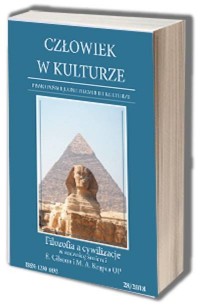Elementy myśli konserwatywnej w filozofii społecznej o. Jacka Woronieckiego
Elements of Conservative Thought in Jacek Woroniecki’s Social Philosophy
Author(s): Tomasz MitraszewskiSubject(s): History of Philosophy, Philosophical Traditions
Published by: Fundacja »Lubelska Szkoła Filozofii Chrześcijańskiej«
Keywords: historical conservatism; philosophical conservatism; eternal doctrine of conservatism; common good; liberalism; St. Thomas Aquinas; E. Burke;
Summary/Abstract: Jacek Woroniecki considers the problem of conservatism in two related, philosophical and historical-social orders. The philosophical order is of a more general nature and depends on the qualities of the eternal doctrine of conservatism. Woroniecki’s conservative doctrine grows out of the classic concept of Aristotle’s and Saint Thomas Aquinas philosophy, from which emerges both a view of realistic and variable reality, and above all constitutes understanding a man as a person – a rational human being, gifted with freedom and the ability to perform moral acts. A man is endowed with a developmental potentiality that he can fully realize in social life. As long as social life is organized due to a conservative rules, provides to a community proper values of common good as well as encourages social harmony and justice. Such a philosophical workshop allowed Woroniecki to define conservatism as a dynamic and fully functional idea. The age-old conservative doctrine thus understood is incorrectly identified with opportunistic self-preservation reflexes, for which the term conservatism became fixed in the nineteenth century. Roots of this situation Woroniecki (also other thinkers, like E. Burke) identifies with French revolution ideas, which are directly responsible for liberal doctrine damaging social life of sound community.
Journal: Człowiek w Kulturze
- Issue Year: 2018
- Issue No: 28
- Page Range: 355-372
- Page Count: 18
- Language: Polish

